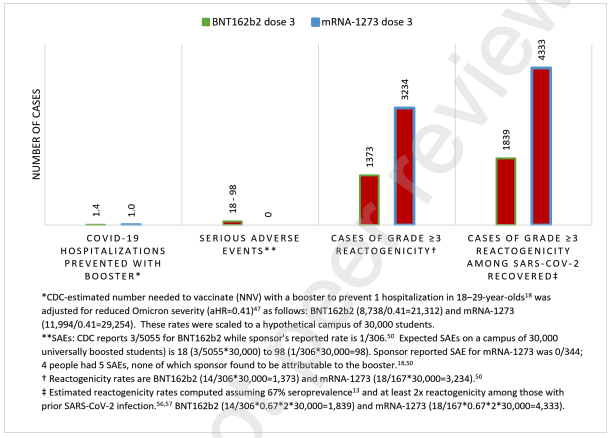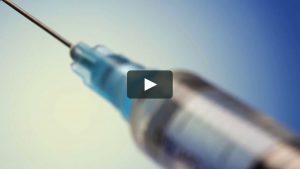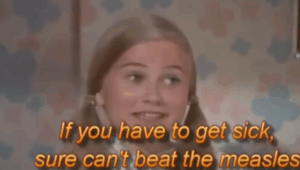STUDY: Vaccines More Dangerous than COVID in Young People

A new study conducted by scientists from Harvard and Johns Hopkins, currently in pre-print, reveals that the COVID-19 vaccines were up to 98 times worse than the virus itself in 18-29-year-olds.
Based on public data provided by the CDC18, we estimate that approximately 22,000 to 30,000
previous uninfected young adults ages 18–29 years must be boosted with an mRNA vaccine to
prevent one Covid-19 hospitalisation. Given the fact that this estimate does not take into
account the protection conferred by prior infection nor a risk-adjustment for comorbidity status,
this should be considered a conservative and optimistic assessment of benefit. Our estimate
shows that university Covid-19 vaccine mandates are likely to cause net expected harms to
young healthy adults—between 18 and 98 serious adverse events requiring hospitalisation and
1373 to 3234 disruptions of daily activities—that is not outweighed by a proportionate public
health benefit. Serious Covid-19 vaccine-associated harms are not adequately compensated for
by current US vaccine injury systems. As such, these severe infringements of individual liberty
are ethically unjustifiable.
Worse still, mandates are associated with wider social harms. The fact that such policies were implemented despite controversy among experts and without updating the sole publicly
available risk-benefit analysis to the current Omicron variants suggests a profound lack of
transparency in scientific and regulatory policy making. These findings have implications for
mandates in other settings such as schools, corporations, healthcare systems and the military.
Policymakers should repeal booster mandates for young adults immediately, ensure pathways
to compensation to those who have suffered negative consequences from these policies,
provide open access to participant-level clinical trial data to allow risk- and age-stratified harm benefit analyses of any new vaccines prior to issuing recommendations125 , and begin what will
be a long process of rebuilding trust in public health.






